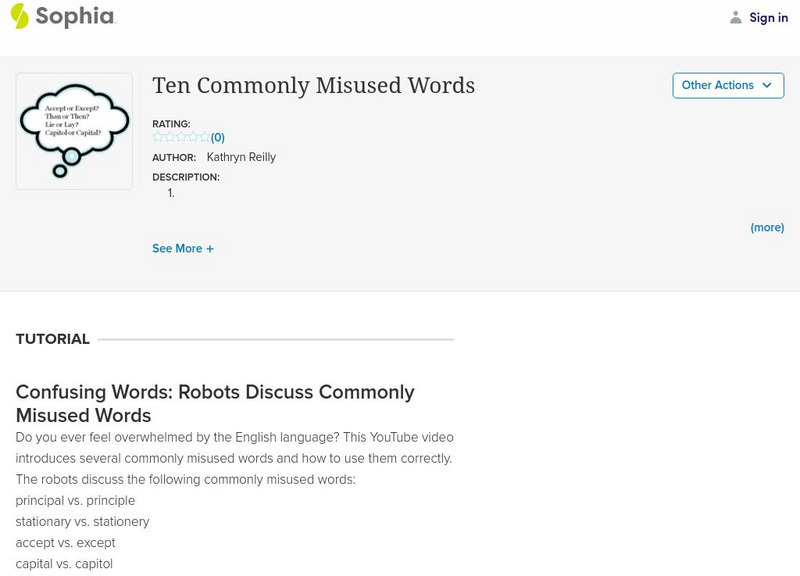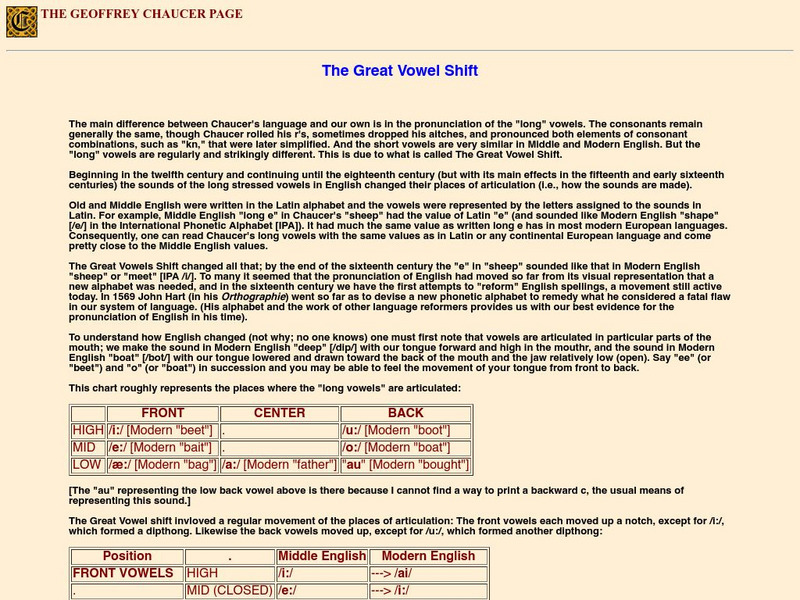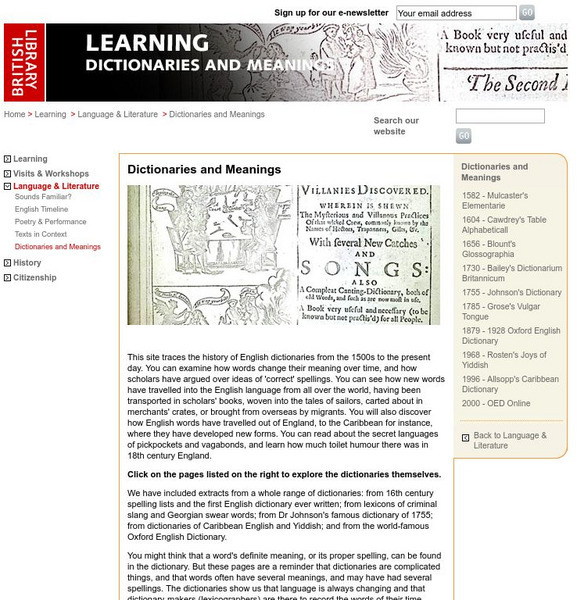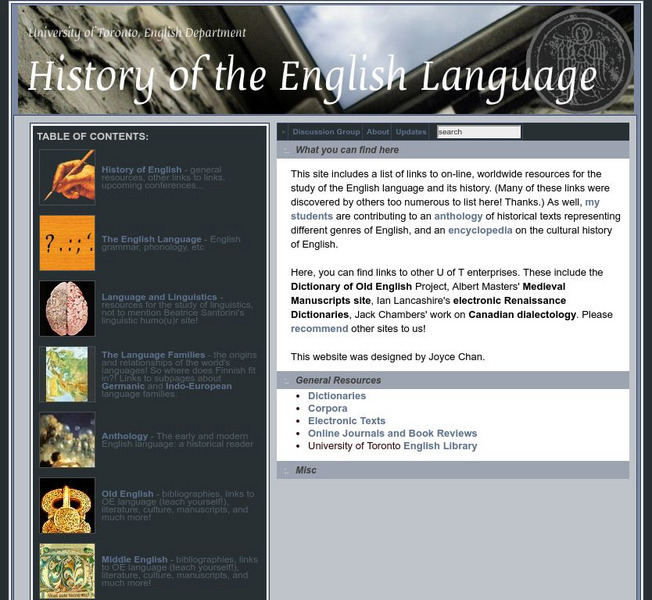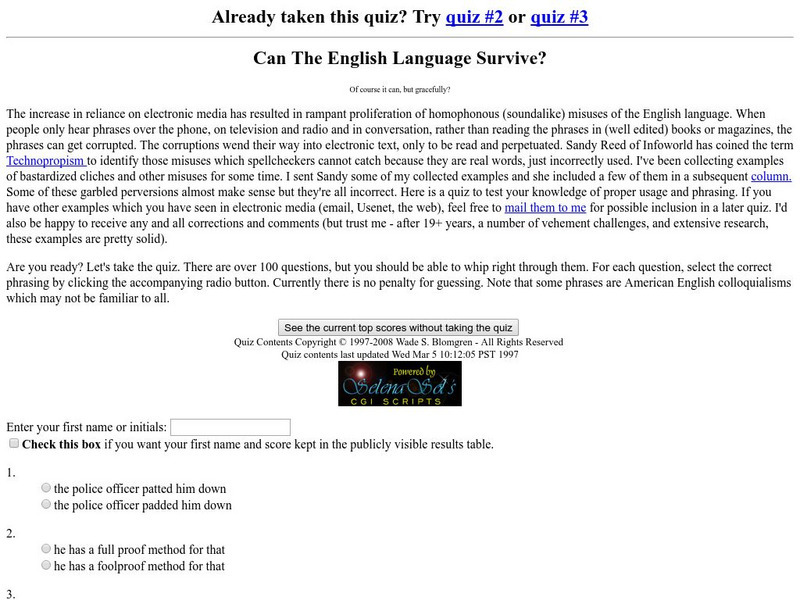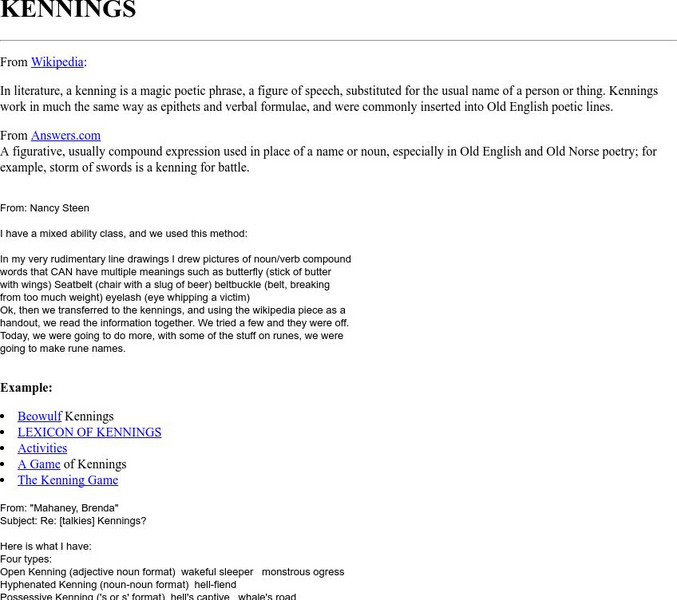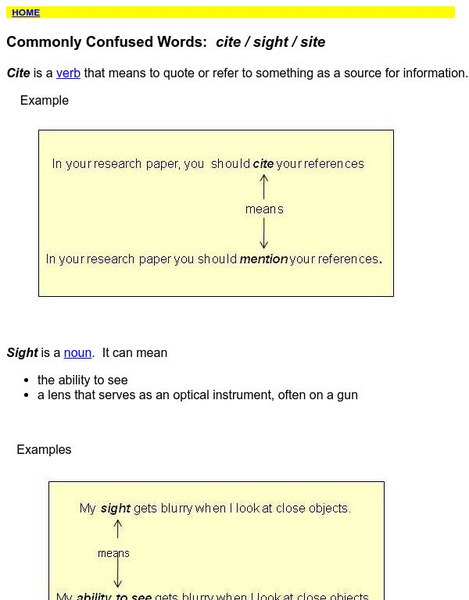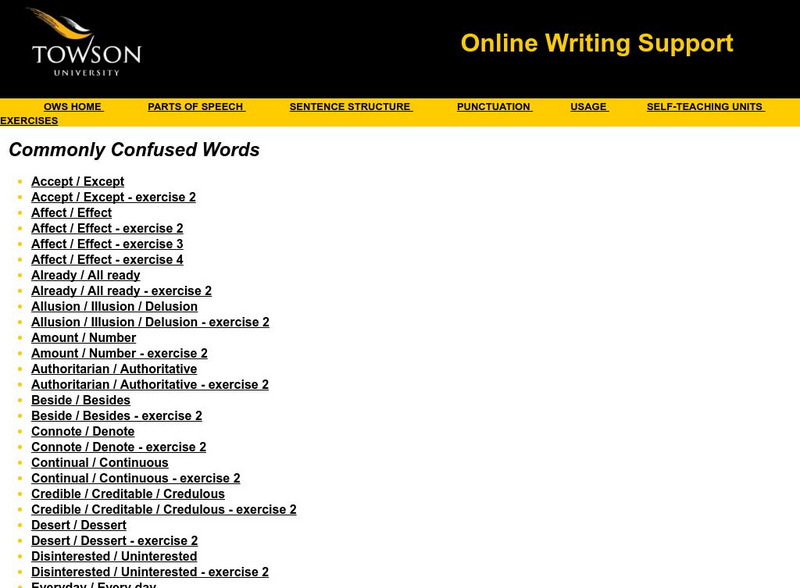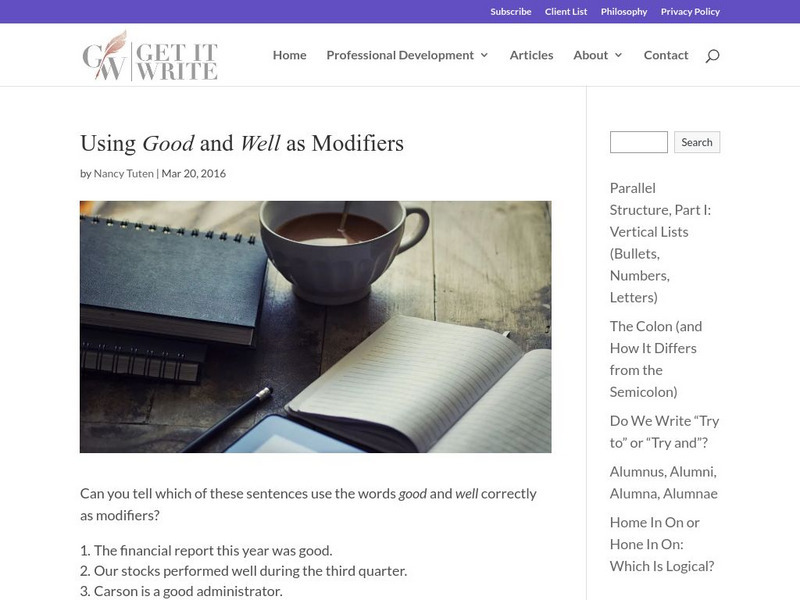Sophia Learning
Sophia: Ten Commonly Misused Words
This tutorial focuses on commonly misused words, their meanings and hints to remember the correct usage.
Texas Education Agency
Texas Gateway: Reference Materials Printed and Electronic
Learn how to use dictionaries, glossaries, and thesauri in order to determine meanings of words and phrases, including their denotations, connotations, and etymologies.
Texas Education Agency
Texas Gateway: Polishing Tone, Style, and Vocabulary (English Iii Research)
[Accessible by TX Educators. Free Registration/Login Required] You will learn revision strategies you can use to polish your research paper's style, tone, and vocabulary. W.11-12.1d Tone/Style
Other
Sharpening Your Writing Skills
This handbook provides step-by-step modules to help you develop an appropriate business writing style. It also gives you rules for punctuation and "plain English." Answers are provided for exercises. PDF document.
Other
The Phrase Finder: Meanings and Origins of Phrases
The free section of this site provides the meanings and origins of thousands of quotations, euphemisms, popular fallacies and misheard song lyrics. A British site, some of the expressions are not familiar to most Americans.
Merriam-Webster
Merriam Webster: Word of the Day
This daily resource gives the word for the day, definition, example sentence and a "Did you know?" about the word.
Rutgers University
Rutgers University: Johnson on the History of the Language
Critical analysis of Johnson's use of literary sources in his dictionary, and his contribution to the development of modern English. Includes extensive notes and bibliography.
Rutgers University
Rutgers University: The Dictionary of the English Language
Brief introductory essay on the history of Samuel Johnson's dictionary. Includes information on the time frame of the work and the significance of the dictionary in the development of modern versions. Criticism is cited.
Harvard University
The Great Vowel Shift
Do you know what the Great Vowel Shift is? Check out this site to learn more how this shift played a part in the history of the English Language.
Exploratorium
Exploratorium: Where Do Languages Come From?
A most interesting site! Explore why the French speak French in France and the English speak English in England and lots of other information on the history of words and languages.
Capital Community College Foundation
Guide to Grammar and Writing: Plague Words and Phrases
"Avoid problems created by these words or phrases." Examples: And also, As to Whether, and lots more.
British Library
British Library: Language & Literature: Dictionaries and Meanings
Article discusses the history of English dictionaries over a five-hundred-year period. Includes selections from Samuel Johnson's dictionary of 1755 and the Oxford English Dictionary. With useful comments about the origins of words,...
University of Toronto (Canada)
University of Toronto: History of the English Language
What do you know about the origins of the English language? Explore this resource to learn more about this topic. This resource features links to several helpful sites.
University of California
Can the English Language Survive?
Due to the "reliance on electronic media, rampant proliferation of homophonous misuses of the English language" has taken place. Test your knowledge on this quiz of homophones.
TED Talks
Ted: Ted Ed: Erin Mc Kean Redefines the Dictionary
Lexicographer and co-founder of new online dictionary Wordnik, Erin McKean, discusses the many ways today's print dictionary is positioned to change, transforming not just dictionaries, but how we interact with language itself. [15:15]
Ted Nellen
Cyber English (By Ted Nellen): Kennings
This is a glossary entry for the term "Kennings" including multiple definitions and examples including links to more examples.
Ted Nellen
Cyber English (By Ted Nellen): Syllepsis
This is a glossary entry for the term "Syllepsis" including definitions and links to more information and examples.
Towson University
Towson University: Ows: Commonly Confused Words: Cite / Sight / Site
This entry focuses on the commonly confused words cite, sight, and site including providing an explanation, examples, and a link to a quiz/exercise.
Towson University
Towson University: Ows: Commonly Confused Words: Everyday / Every Day
This entry focuses on the commonly confused words everyday and every day including providing an explanation, examples, and a link to a quiz/exercise.
Towson University
Towson University: Online Writing Support: Commonly Confused Words
This is a list of links to self-grading exercises for commonly confused and misused words.
Online Writing Lab at Purdue University
Purdue University Owl: Exercise: A or An?
This Purdue University OWL (Online Writing Lab) provides practice opportunities for students to choose between the articles "a" and "an" in the context of phrases. L.11-12.1b Usage issues
Online Writing Lab at Purdue University
Purdue University Owl: Spelling: Accept vs. Except
A good reference that defines, differentiates, and demonstrates the usage and purposes of these commonly misused English words.
Get It Write
Get It Write: Using "Good" and "Well" as Modifiers
This site provides an explanation for using "good" and "well" properly. A self test is given at the end of the article.
Get It Write
Get It Write: Using a Comma Before "And" in a Series
This article discusses the correct use of a comma before the word "and" in a list. In addition to clear explanations and examples, there is a self-test with answers. L.11-12.1a Gram/Usage changes, L.11-12.1b Usage issues


